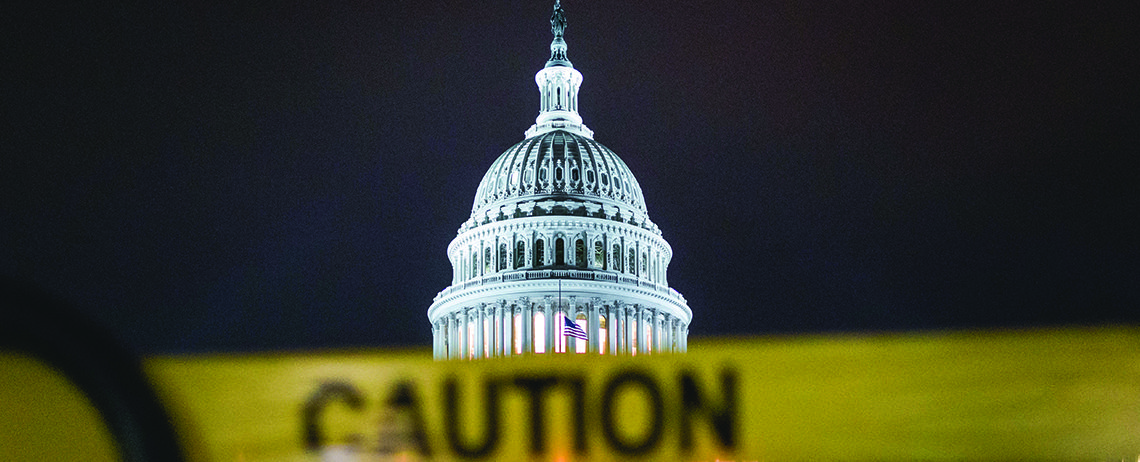How the Shutdown is Affecting Safety Across America
SafetyCulture News | By | 15 Jan 2019 | 3 minute read

The US Government shutdown is now the longest in history, and with every passing day there are more pressures on frontline workers and systems that are going unpaid and unfunded. Last Friday marked the first pay day to come and go without checks sent out, and there are reports that in some places workers expected to show up without pay are calling in sick. What does this mean for public health and safety? Some of the impacts are readily visible, others are more difficult to see.
Airport Safety
While you may have heard about TSA officers calling in sick because they don’t want to work without pay, that’s not the only element of airport safety that’s been disrupted due to the shutdown.
Routine behind the scenes inspections have been cut back, and in some cases airlines are having to delay bringing planes back into rotation after maintenance or repairs because there’s no one to inspect and sign off on them.
“Every day that goes by that the government is shut down, safety is going to be compromised,” national president of the Professional Aviation Safety Specialists, which represents safety inspectors who are furloughed, told the New York Times. “Every day that goes by, something could occur that causes a crack in the system.”
Pressure to plug the gaps saw the Federal Aviation Administration on Tuesday revise the number of essential workers, increasing those required to turn up to work without pay from just 216 to 3113. The move is hoped in improve safety as the shut down stretches into its fourth week.
Food Safety
It has widely been reported that the FDA had stopped carrying out safety inspections in food processing plants and of high-risk foods like seafood, raising concerns about public health and food safety across the United States. While meat and poultry inspections continued under the USDA, all other food inspections, the responsibility of the FDA, were compromised by the shutdown. But as with air safety, as the impasse has dragged on, the FDA has attempted to begin inspections again. Like the FAA, it is relying on workers who will not be paid until the standoff is over.
Cyber Safety
According to website Data Center Knowledge, government agency cyber security staffs are operating with fewer employees, leaving gaps in cyber defences. The Department of Homeland Security has furloughed nearly half the people staffing the Cybersecurity and Infrastructure Security Agency, as well as members of the analysis and operations team.
Those absences could cause real problems, either now or down the road, for government websites and cloud storage. Many of the problems that could arise due to understaffing during the shutdown might not be apparent until much later, but involve potential risks like data breaches, delays in detecting security compromises and other serious issues. There’s also the possibility that staff who find themselves off work indefinitely will seek new opportunities in the private sector, leaving these government agencies short-handed longer term.
Disaster response and preparation
It’s more difficult to quantify how these areas of government are affected by the shutdown, as some of the furloughed workers are currently working on hurricane preparedness, with that season not due to start until June 1. But training and modeling delays could have an impact down the track.
Meanwhile the agency that monitors volcanoes and earthquakes is staffed at roughly half its usual level, and the director of the Pacific Northwest Seismic Network says, “We just have our fingers crossed that if we have a real problem here that we don’t have a real problem here, because we’re not confident that our backup will be effective!”
Workplace Safety
Because it’s a partial shutdown, not all government departments are affected. So OSHA, which is funded by the Department of Labor, is not currently subject to the furlough. That means it’s business as usual for workplace inspectors, as the agency continues to operate as normal.
Important Notice
The information contained in this article is general in nature and you should consider whether the information is appropriate to your specific needs. Legal and other matters referred to in this article are based on our interpretation of laws existing at the time and should not be relied on in place of professional advice. We are not responsible for the content of any site owned by a third party that may be linked to this article. SafetyCulture disclaims all liability (except for any liability which by law cannot be excluded) for any error, inaccuracy, or omission from the information contained in this article, any site linked to this article, and any loss or damage suffered by any person directly or indirectly through relying on this information.





